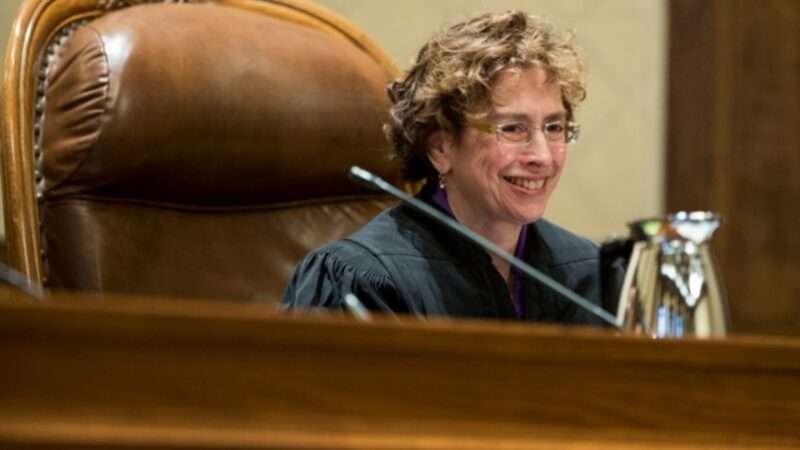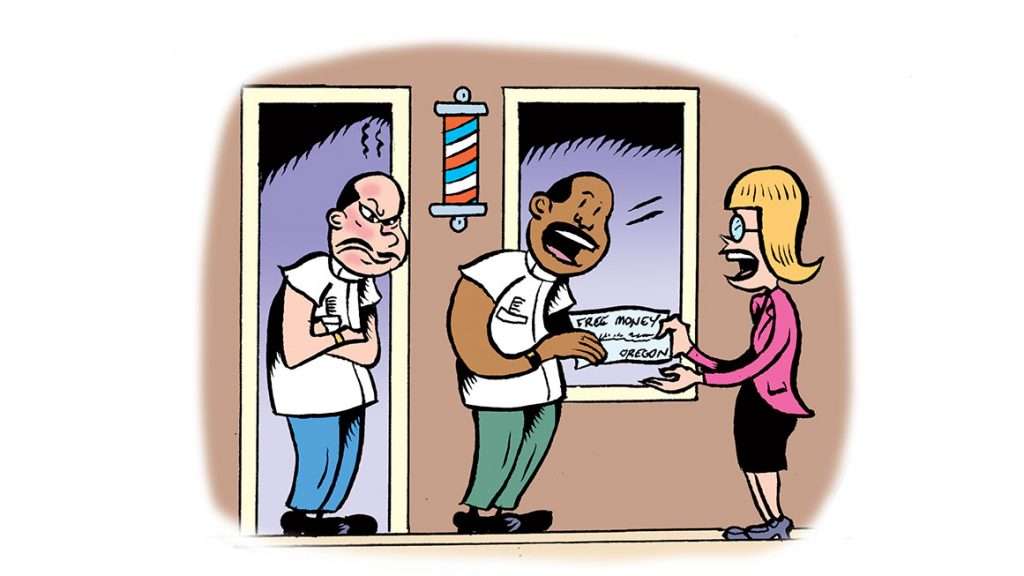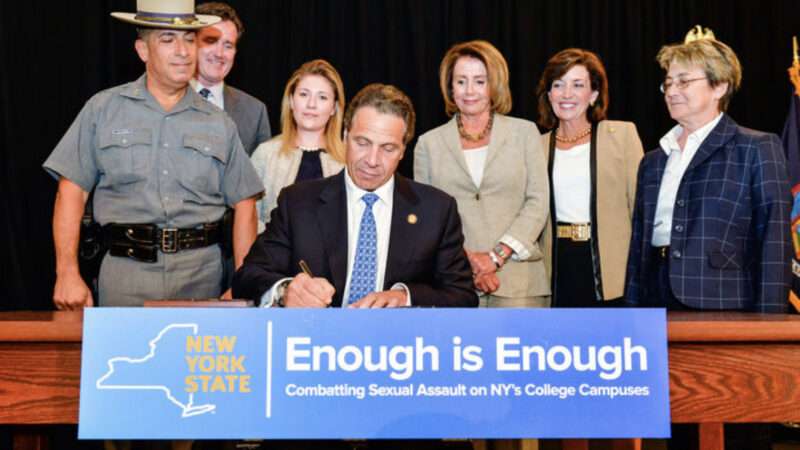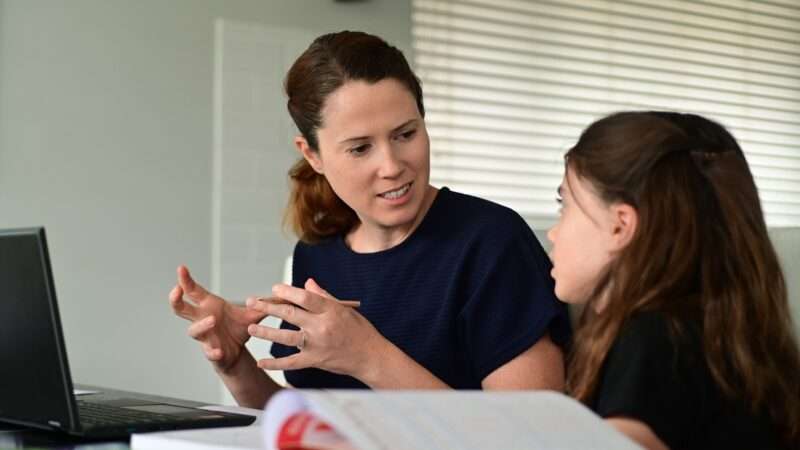
The Washington Supreme Court effectively decriminalized simple drug possession in that state last week by overturning a law that made possession a felony without any evidence of intent or knowledge. In an opinion issued on Thursday, the court concluded that the absence of a mens rea (“guilty mind”) requirement violated the right to due process. As a result of that decision, Washington police have stopped arresting people for simple possession, while prosecutors are dropping pending cases and seeking orders vacating past convictions under the law.
The case involved a Spokane woman named Shannon Blake, who was arrested in 2016 during a vehicle theft investigation. A corrections officer at the jail found a small plastic bag of methamphetamine in the coin pocket of Blake’s secondhand jeans, which a friend had given her two days before. Blake said she did not use meth and had no idea she was carrying it. But under Washington law, she was still guilty of possessing a controlled substance, a felony punishable by up to five years in prison and a $10,000 fine.
Washington was the only state that criminalized innocent, unknowing possession of illegal drugs. The Washington Supreme Court has repeatedly held that the statute under which Blake was convicted does not require evidence of knowledge or intent. “If the legislature had intended guilty knowledge or intent to be an element of the crime of simple possession of a controlled substance,” the court ruled in 1981, “it would have put the requirement in the act.” Twenty-three years later, the court reiterated that the legislature had made drug possession a strict liability crime.
Despite that well-established understanding of the law, the court had never before addressed the question of whether the omission of a mens rea element made the law unconstitutional. But in their decision overturning Blake’s conviction, Justice Sheryl Gordon McCloud and four of her colleagues ruled that “the state legislature’s exercise of its otherwise plenary police power to criminalize entirely passive and innocent nonconduct with no mens rea or guilty mind violates the due process clause of the state and federal constitutions.”
Writing in dissent, Justice Debra Stephens said the court could have fixed the problem by reading a mens rea requirement into the statute. But in the majority’s view, the court’s longstanding decisions that declined to do so, combined with the legislature’s failure to change the statute in light of those rulings, foreclosed that option. “We have overwhelming evidence that the legislature intends the simple possession statute to penalize innocent nonconduct,” it said, “and we have overwhelming legal authority that this violates the due process clauses of the state and federal constitutions.”
In response to the decision, the Seattle Police Department announced that “officers will no longer detain [or] arrest individuals” for simple possession. Spokane Police Chief Craig Meidl likewise said “we will still seize [controlled substances] as contraband, but there will not be any criminal sanctions.” The Washington Association of Sheriffs & Police Chiefs told its members that “law enforcement officers are no longer authorized to conduct a criminal investigation, effect an arrest, seek a search warrant or take any other law enforcement action for simple possession of controlled substances.”
The Associated Press reports that the Washington Association of Prosecuting Attorneys “instructed its members to immediately drop any pending cases for simple drug possession, to obtain orders vacating the convictions of anyone doing time for simple drug possession, and to recall any arrest warrants issued in such cases.” The article adds that “people who were subject to forfeiture cases could seek redress for the loss of their property.”
The state legislature can—and probably will—recriminalize simple possession by amending the statute to include a mens rea element. A bill introduced by state Sen. Steven Hobbs (D–Lake Stevens) would add the word knowingly to the provision making it “unlawful for any person to possess a controlled substance” without a prescription. “Right now, you can have controlled substances and not get arrested,” Hobbs told KOMO News on Friday. “It’s kind of crazy. I know several states have gone through this very problem before and now it’s our turn, and we have to fix it right away.”
A bill narrowly approved by the House Public Safety Committee on February 15 offers an alternative: Like a ballot initiative that Oregon voters passed in November, the Pathways to Recovery Act would eliminate criminal penalties for possessing “personal use amounts” of drugs while expanding addiction treatment services. The bill envisions a program of “peer-driven, noncoercive outreach and engagement” for people with drug problems.
As it stands, Oregon and Washington are the only states where drug use is not treated as a crime. Rep. Lauren Davis (D–Shoreline), the main sponsor of the Pathways to Recovery Act, thinks drug use should instead be treated as a disease. “It is imperative that we stop handing down felony possession convictions that compound shame and create barriers to recovery,” she told Marijuana Moment. “We must stop criminalizing symptoms of a treatable brain disease.” Her bill likewise says “substance use disorder is among the only health conditions for which a person can be arrested for displaying symptoms.”
This view mistakenly describes a pattern of behavior as a brain disease. As Davis’ bill notes, people choose to take drugs for identifiable reasons. For example, “People use drugs to escape the painful reality of their lives and circumstances, including trauma that has never had a chance to heal.” Characterizing those decisions as the product of a disease denies the autonomy and moral agency of drug users, implying that their choices not only do not matter but, strictly speaking, do not even exist.
Although Davis, to her credit, favors a “noncoercive” approach to addiction, many other politicians, including President Joe Biden, think drug users should be forced into treatment under the threat of incarceration, then locked in “rehab centers” rather than jails or prisons. They counterintuitively present that policy as an enlightened and humane alternative to criminalization.
The focus on addiction as a brain disease also ignores the experiences of most drug users, who neither want nor need the “help” that Biden would like to foist upon them. The injustice of our drug laws should be clear from the simple fact that they authorize the arrest and imprisonment of people for peaceful conduct that violates no one’s rights. That policy is morally abhorrent regardless of whether its victims qualify for a diagnosis of “substance use disorder.”
Sen. Hobbs thinks “it’s kind of crazy” that people cannot be arrested and locked in a cage for possessing an arbitrarily proscribed intoxicant. To the contrary, it’s the policy Hobbs supports that is manifestly irrational.
from Latest – Reason.com https://ift.tt/37XdwOG
via IFTTT







